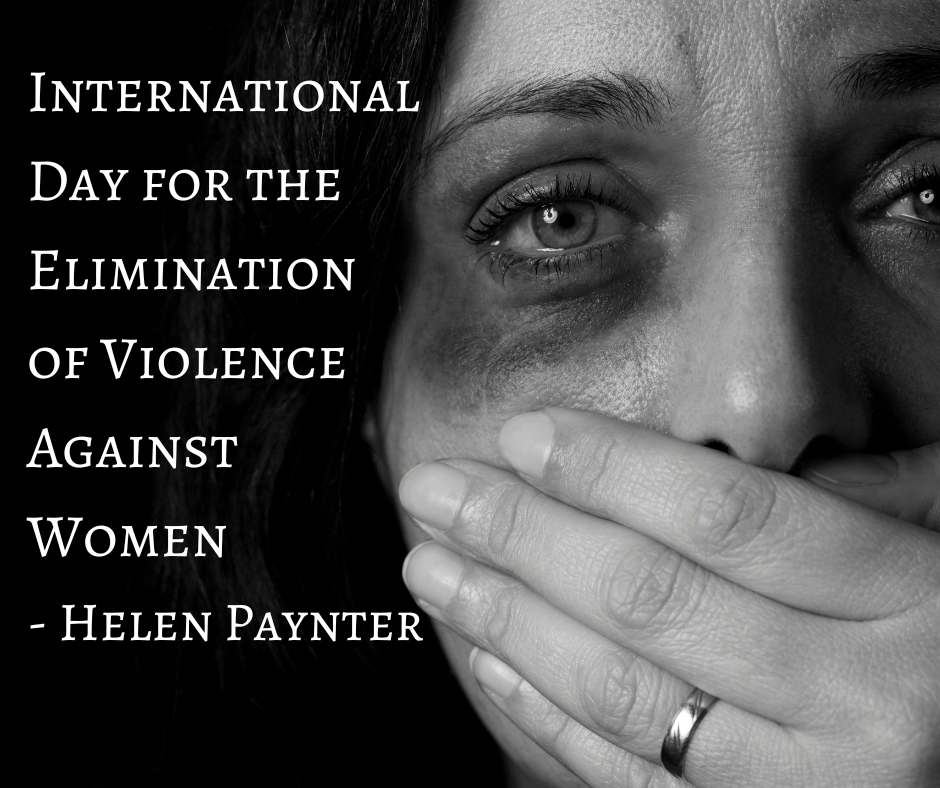Helen Paynter on the International Day for the Elimination of Violence against Women
A blog by Helen Paynter
Since the last International Day for the Elimination of Violence against Women, an estimated 91 women in the UK have been murdered by their partners. This, of course, is the bloody tip of a violent iceberg; many, many more women, and men too, have suffered at the hands of abusive partners.
As a society, we became more alert to the issue of domestic abuse during the pandemic, because for many who were trapped in with an abuser, life became even harder and more dangerous. As charities and campaigners warned, the pressure cooker effects of confinement and the impossibility of escape left vulnerable women – for it is mainly women – in increased danger.
While crime in general fell during the Covid-19 lockdown there was a significant – sometimes dramatic – increase in domestic violence reporting. Across the world, estimates of the increase in levels of domestic violence range upwards from 20%.
It is vitally important that we don’t allow our concern to dissipate and our attention to wander, now that we are all able to move about more freely, because the issue is ongoing.
Many will find it shocking that, statistically, domestic abuse is as common within the church as it is in wider society. That means that in an average-sized UK church, there is likely to be at least one person actively experiencing domestic abuse or coercive control.
The church should be at the forefront of the campaign to make the world safe for all victims of domestic abuse. And sometimes it is. But at other times, tragically, churches operate with cultures that facilitate abuse, protect abusers from the consequences of their actions, and send those who have suffered harm back into harm’s way.
What can we do? We can educate ourselves to notice the signs of abuse and make sure that we always take allegations seriously. We can ensure that we have systems in place to respond appropriately when abuse is suspected or alleged. And we can make sure that our theology, our biblical interpretations, do not add to the weight of factors making it hard for someone to leave an abusive spouse.

In October 2020 BRF published my book The Bible Doesn’t Tell Me So: Why you don’t have to submit to domestic abuse and coercive control.
The book grew out of personal encounters with women experiencing abuse and coercive control, along with a particular interest in violence in the Bible. It challenges the use of the Bible in validating domestic abuse. It is addressed directly to women experiencing such abuse, and to those who seek to support them, including pastoral leaders, friends and support organisations.
To mark this year’s International Day for the Elimination of Violence against Women, BRF is making available an extract from The Bible Doesn’t Tell Me So which can be downloaded for free.


